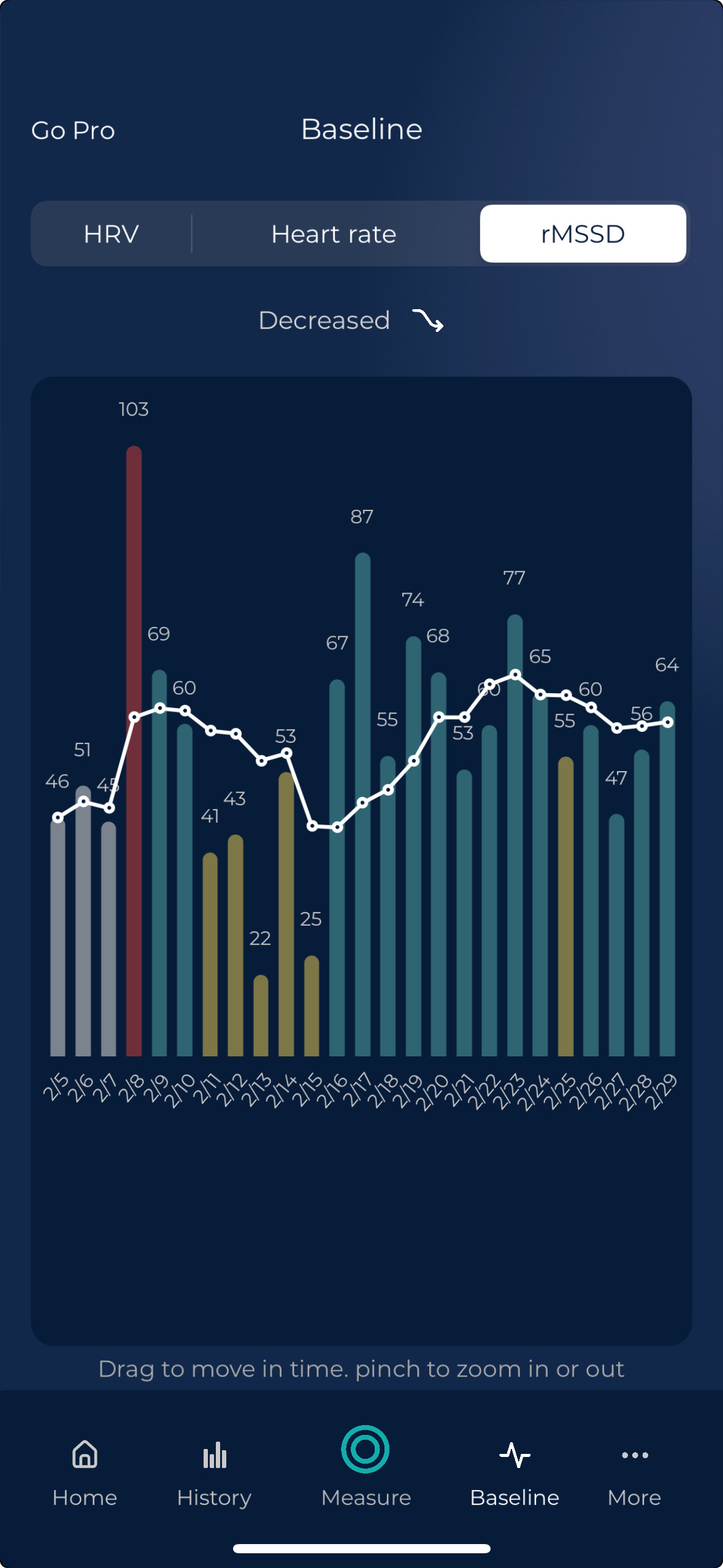Lead From Within: Recovery
Within the first two minutes of watching Matthew Walker’s Why We Sleep Ted Talk, I knew I needed to make a change to my personal sleep and recovery habits.
In the run-up to 2019, before a foot surgery in November of that year would eventually sideline me, I was waking up before 5am three to four times a week to join a group of guys for an outdoor bootcamp-style workout. Many mornings I’d add in for a 5k “pre-run” before the workout.
We’d joke about no longer needing as much sleep, and like many other driven individuals, we’d “sleep when we were dead.”
While my mornings were amazing, and led to many great friendships that continue to this day, my afternoons and evenings were less than ideal.
Necessary naps, a lack of focus at work, and falling asleep on the couch after dinner had all become common. So had a shorter temper with the kids and a “need” to go to bed early that impacted the time I got to spend winding down with Kelly.
At most, I was getting 7 hours a night. But more regularly, it was in the 5.5-6 hour range. I had reached peak zombie status, and my fitness was no longer improving while my internal/external world was suffering as well.
Walker’s Ted Talk titled “Sleep Is Your Superpower” hit me like a ton of bricks sometime in early 2020, and I have been working on the practice of sleep and recovery ever since. I highly encourage you to watch it.
I learned that I my “fitness” routine was negatively impacting my ability to be fit, and that by slowing down and getting proper recovery, I could actually achieve more than I had imagined possible.
Getting my sleep dialed was step one, and as my fitness journey progressed, the work of
and and their focus on Heart Rate Variability (HRV) has now started to play an even bigger role in how I approach training. In short, when your HRV is high (good), you absorb training more efficiently and adapt to it more effectively.When your HRV is low, as I’m sure mine used to be more times than not, you can train and even push yourself, but your body is not in a state where it can absorb that training, adapt, and allow you to recovery and do it again quickly.
If that’s not an analogy to life outside of training, I don’t know what is.
Below is an image of my own HRV data for February using Altini’s HRV4Trainig app (using my Polar H10). You can see day-to-day HRV fluctuations impacted by quantifiable metrics + my own subjective account (did I travel, am I sick - yes to both as seen in yellow earlier this month).
How do you positively affect your own HRV? By doing many of the things we’ve outlined in this series - addressing and positively processing the many forms of stress in your life - physical, mental, emotional, environmental - and that all starts with a good night’s sleep.
If you’re still curious, I recommend this article from
:This is the last focused post in the Lead From Within series and I’ll wrap things up with a recap and action plan for building your own Daily Practice in the next week or two. I really appreciate you giving me the chance to share some of these thoughts and practices with you, I hope you found them helpful!
Paul
Move forward. Stay in the game
W5: Recovery - Recharge to Continue the Journey
“Sleep is the single most effective thing we can do to reset our brain and body health each day.” Matthew Walker, PHD
Objectives
Introduce the importance of Recovery as a means of resetting mentally and physically, which allows for continued growth and performance towards long-term goals instead of short-term objectives.
Discuss the Coachee’s current recovery methods and habits and how they impact energy
Co-Create a plan for building in more periods of recovery throughout the day
Key Questions
What is the first thing that comes to mind when you hear the phrase: “you can sleep when you’re dead.”?
Tell me more about your current sleep habits today.
What do you think is holding you back from optimal sleep and recovery?
How do you know when you need to step away from work to recharge or recover?
Stretch Assignments
Watch: Matthew Walker’s Sleep is Your Superpower Ted Talk
(optional) Watch: Rich Roll’s Interview with Matthew Walker (very long, but very insightful)
At-home journaling exercise: Record when you went to bed / woke up, and reflect upon your energy levels throughout the day. Try to identify some of the inputs or routines that may have had a positive or negative impact.
At-home recovery technique: Try out the Physiological Sigh






